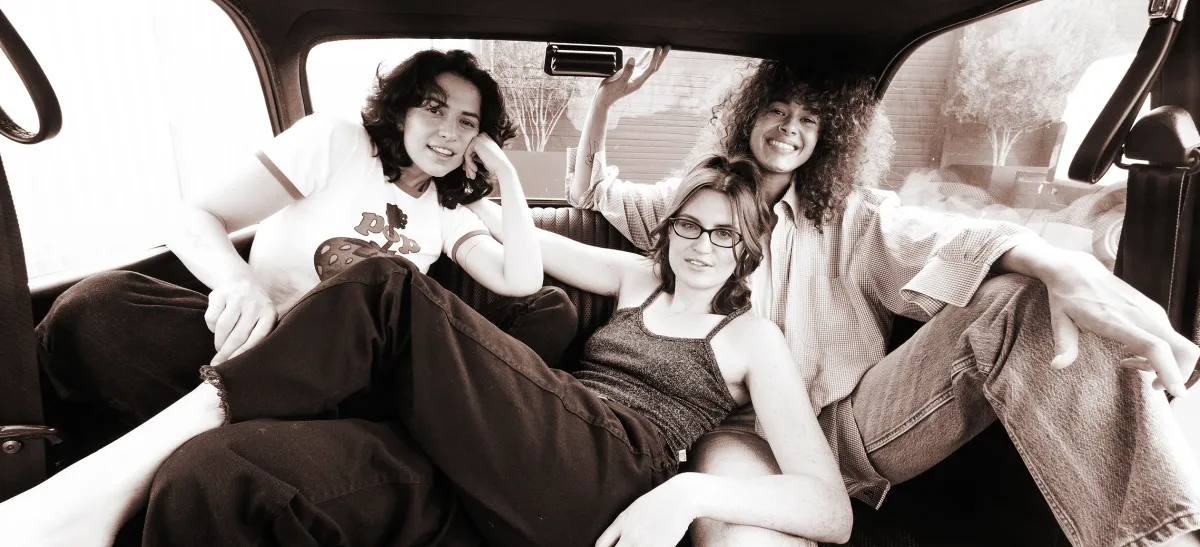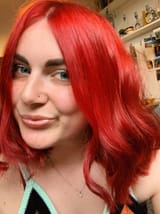Heartbeats: How Alt-Pop Trio MUNA Helped Me Embrace My Bisexuality
MUNA has largely been unapologetic in their queerness since their debut, but their recent comeback ‘Silk Chiffon’ has levelled things up considerably.

Access the Audio Read version of this article directly on Spotify for Podcasters.
In 2017, I was an undergraduate struggling to navigate my sexuality. I was wading through bouts of anxiety and depression so intense I was often rendered unable to do anything other than lie in bed and listen to music. The soundtrack to this difficult year was About U by American alt-pop group MUNA.
It took me a long time to figure out that I was bisexual. I’d had a legacy of dating boys as a teenager, but when I was seventeen, I started to wonder whether my feelings for girls might mean something more than friendship. Moving to university, I started to explore the world of queer dating and it was euphoric, but I couldn’t figure out where I stood. I didn’t yet understand that bisexuality doesn’t look the same for everyone: dating exclusively women in my first year, I wondered whether I might be a lesbian.
Up to that point, my interpretation of a bisexual person was someone that would flit evenly between genders. I didn’t understand that it was possible to have dated more women than men, and still be bisexual. This is where the queer visibility of MUNA was critical for me. Speaking openly about her queerness, lead singer Katie emboldened me to embrace my bisexuality, telling stories of navigating dating apps with people of all genders. It was a lightbulb moment, as if someone had flicked a switch and said: “see! You can be bisexual.”
MUNA has largely been completely unapologetic in their queerness since the beginning of their careers. ‘I Know A Place’ and ‘Loudspeaker’, taken from debut About U, have evolved into a queer call to arms, and in the wake of the shooting at LGBTQI nightclub Pulse in Orlando in June 2016, these words meant so much.
Their recent comeback, ‘Silk Chiffon’, has levelled things up considerably. Featuring proud bisexual Phoebe Bridgers, the song boldly encapsulates defiant feelings of queer attraction, with lyrics proclaiming “Watch her silk dress dancing in the wind/Watch it brush against her skin/Makes me wanna try her on.” Up until this point, MUNA had been hesitant to use gendered pronouns in their lyrics: these songs could’ve been about anyone, which is a beautiful thing in itself.
A watershed moment for the visibility of LGBTQI people in alt-pop, particularly women and non-binary people, these lyrics were released on Saddest Factory Records, a division of Dead Oceans. As Phoebe Bridgers’ newly formed record label, these voices have the power to embolden so many LGBTQI people like me.
The music video depicts a bold spin on classic film But I’m A Cheerleader, drawing on themes of forbidden queer lust. Phoebe Bridgers takes on the role of conversion camp lead, whilst band members Katie, Jo and Naomi act out the characters of shamed queer teenagers. In the end, MUNA runs away in a plot twist akin to The Miseducation of Cameron Post, looking into the camera as if to tell their fans that being LGBTQI is something to feel joyous about, rather than ashamed of.
I’m not the only one MUNA has helped on their queer journey. “I first heard MUNA back in 2017. At first, I didn’t realise MUNA was a queer band but looking back it’s hardly surprising I was drawn to them, given I also came out that same year! As I grew, MUNA grew with me and we both came into our gayness together”, says Jess.
Attending their seminal gig at Leeds’ Brudenell Social Club in December 2019, Jess acknowledges that MUNA consciously creates a safe space for their fans: “It was one of the last gigs I went to before Covid – I can’t even describe how sensational the energy in the room was. I think that’s a testament to the message that permeates throughout all of MUNA’s music”, she continues. Committed to providing gender-neutral toilets at their gigs, MUNA acknowledge the fanbase they’ve nurtured.
Many young LGBTQI people like Jess and I have blossomed listening to the queer sonics of their music and found a home in their stories. MUNA’s music taught me that it’s okay to be any queer colour of the rainbow. Now, I navigate my bisexuality with pride: in the words of MUNA, “I am a loudspeaker.”





